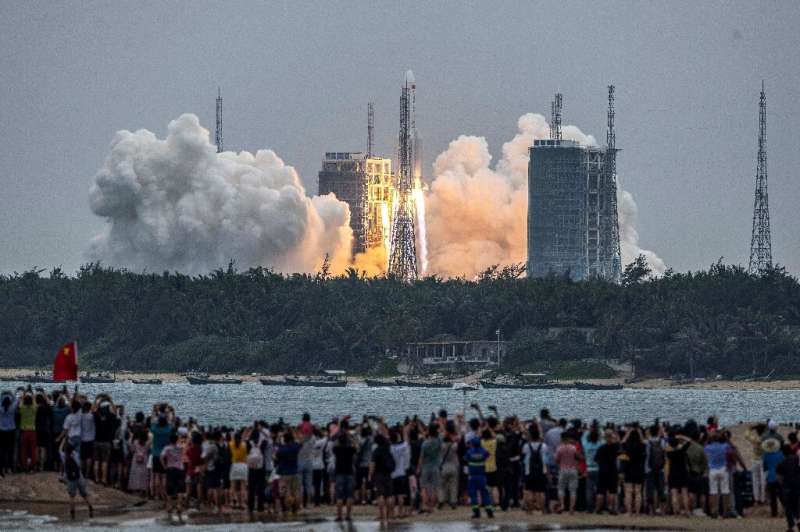After its separation from the space station module, the rocket began to orbit the Earth in an irregular trajectory as it slowly lost altitude, making any predictions about where it will re-enter the atmosphere or fall back to the ground nearly impossible.
It could end up breaking apart upon entry, with only smaller debris bits falling to Earth—and even if the rocket falls from the sky mostly intact, there is a good chance it will just splash down into the ocean on a planet made up of 70 percent water.
But neither of those outcomes is certain, and there is a chance the rocket could crash land into an inhabited area or onto a ship.
Kirby said it is "too soon" to know whether any action, such as destroying the space debris, can be taken if human-occupied regions are threatened.
"We're tracking it. We're following it as closely as we can," he said. "It's just a little too soon right now to know where it's going to go or what, if anything, can be done about that."
It is not the first time China has lost control of a space craft as it returns to Earth. The space laboratory Tiangong-1 disintegrated upon re-entry into the atmosphere in 2018, two years after it had stopped working, though Chinese authorities denied they had lost control of the ship.
Explore further
© 2021 AFP



